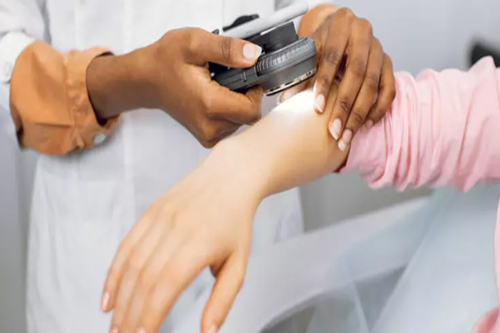
Best Dermatologist In Nagpur is a medical doctor who specializes in the diagnosis, treatment.thus, prevention of conditions related to the skin, hair, and nails. Dermatology is a branch of medicine that focuses on the health of these integumentary structures. Dermatologists undergo extensive education and training to become experts in the field of dermatology.
Determining the “best dermatologist” can be subjective and depends on various factors, including individual preferences, specific dermatological needs, and geographic location. the best dermatologist for one person may not be the best for another, as individual needs and preferences vary.
What Dermatologists Do
Skin Conditions: Dermatologists diagnose and treat a wide range of skin conditions, including but not limited. once, to acne, eczema, psoriasis, dermatitis, rosacea, and fungal infections.
Skin Cancer: Thus, Dermatologists play a crucial role in the early detection and treatment of skin cancer. Firstly, They conduct skin examinations to identify suspicious moles or lesions and may perform biopsies or surgical procedures for removal.
Hair and Scalp Disorders: Conditions affecting the hair and scalp, such as alopecia (hair loss), dandruff, and infections, fall under the expertise of dermatologists.
Nail Disorders: Dermatologists diagnose and treat various nail disorders, including fungal infections, ingrown nails, and other nail abnormalities.
Cosmetic Dermatology: Some dermatologists specialize in cosmetic dermatology, offering procedures .such as Botox injections, dermal fillers, chemical peels, and laser treatments. thus, to enhance the appearance of the skin and address signs of aging.
Allergies and Contact Dermatitis: Dermatologists can identify and treat allergic reactions and contact dermatitis. therefore, which occur when the skin comes into contact with irritating substances.
Infectious Skin Diseases: Dermatologists diagnose and manage infectious skin diseases caused by bacteria, viruses, fungi, or parasites.
Chronic Skin Conditions: Conditions like psoriasis and eczema require ongoing management, and dermatologists can provide long-term treatment plans to help control symptoms and improve quality of life.
Procedural Dermatology: Dermatologists perform various dermatologic procedures, including skin biopsies, excisions, cryotherapy (freezing), laser therapy, and Mohs surgery for certain types of skin cancer.
Patient Education: Dermatologists often educate patients about proper skincare routines, sun protection, and lifestyle factors that can impact the health of the skin.
Services Offered by Dermatologists
- Acne Treatment:
- Dermatologists offer various treatments for acne, including topical and oral medications, chemical peels, and light-based therapies.
- Eczema and Dermatitis Management:
- Diagnosis and management of inflammatory skin conditions such as eczema and dermatitis through prescription medications, moisturizers, and lifestyle recommendations.
- Psoriasis Treatment:
- Dermatologists provide treatments to manage psoriasis, including topical medications, systemic medications, and phototherapy.
- Skin Cancer Screening and Treatment:
- Dermatologists are trained to identify and treat various types of skin cancer. They perform skin cancer screenings and may perform biopsies or surgical procedures for removal.
- Hair and Scalp Services:
- Diagnosis and treatment of hair and scalp conditions, including alopecia (hair loss), dandruff, and fungal infections. Dermatologists may recommend medications, injections, or other therapies.
- Nail Disorders:
- Diagnosis and treatment of nail disorders such as fungal infections, ingrown nails, and nail deformities.
- Cosmetic Dermatology:
- Dermatologists may offer cosmetic services, including Botox injections, dermal fillers, chemical peels, laser treatments. once, microdermabrasion to improve the appearance of the skin and address signs of aging.
- Wart and Mole Removal:
- Removal of warts, moles, and other benign skin growths through various procedures, including excision, laser therapy, or cryotherapy (freezing).
- Laser and Light Therapies:
- Dermatologists use lasers and light-based therapies for various purposes, such as removing unwanted hair, treating pigmentation issues. thus, addressing vascular lesions.
- Allergy and Patch Testing:
- Thus, Testing for skin allergies and patch testing for contact dermatitis to identify specific allergens causing skin reactions.
- Scar Revision:
- Therefore, Dermatologists may provide treatments to improve the appearance of scars, including surgical techniques, laser therapy, or injectable fillers.
- Cryosurgery:
- Treatment of various skin conditions using cryosurgery, which involves freezing the targeted tissue to remove or destroy it.
- Mohs Surgery:
- Mohs surgery is a specialized procedure for the removal of certain types of skin cancer, particularly those with high recurrence rates or located in sensitive areas.
